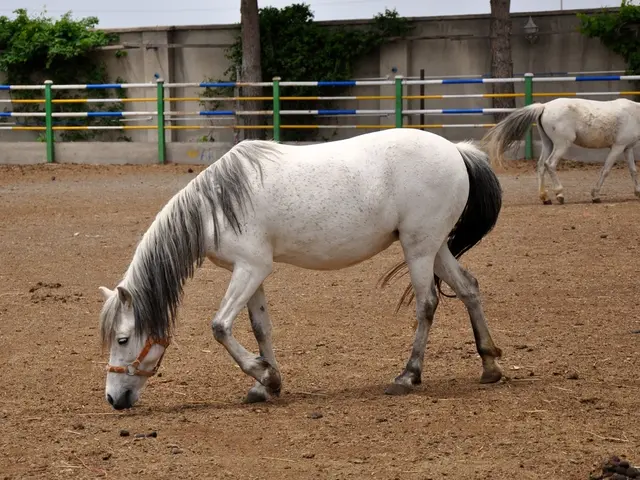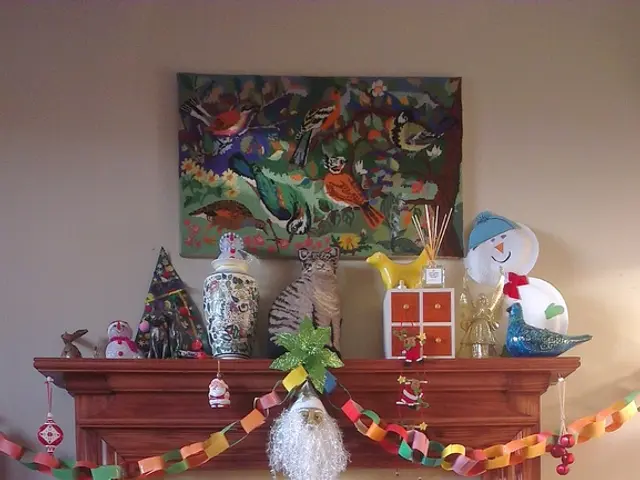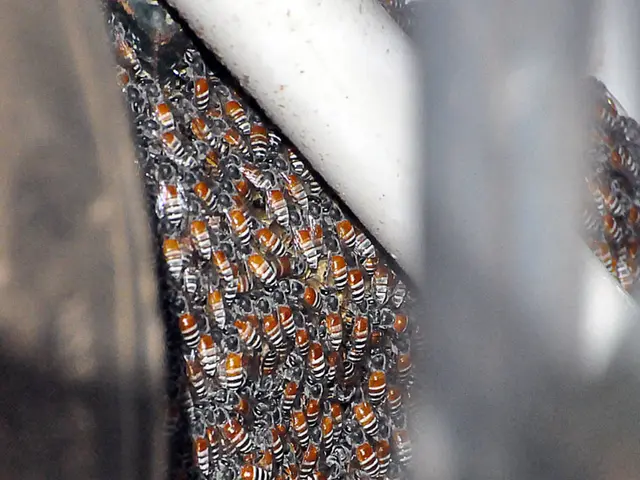Nine Hidden Risks to Your Dog's Safety in Your Very Own Backyard
Owning a well-maintained backyard can offer innumerable benefits for dogs, providing ample space for exercise, play, and interaction with nature. However, these outdoor spaces can also harbor potential hazards If not properly managed.
Here are nine common backyard dangers to be aware of when ensuring a safe and enjoyable outdoor environment for dogs:
Toxic Plants
Vibrant spring flowers like tulips, daffodils, and azaleas often decorate gardens but can be toxic to dogs. Such plants may cause symptoms ranging from vomiting, diarrhea, seizures, to even death. To maintain a pet-friendly garden, consider planting toxic-free options in portions of the yard inaccessible to your dog or research the plants already growing in the yard. Many common garden weeds and flowers can be harmful, while safer options include roses, marigolds, sunflowers, and African violets.
Mulch, Sticks, and Rocks
Curious dogs, and especially puppies, often indulge in exploring their environment by mouth. This could lead to them ingesting non-edible items such as rocks or mulch, causing digestive discomfort, irritation, or even an obstruction that may necessitate surgery. To prevent accidents, supervise your dog's outdoor activity, restrict access to certain areas, or walk the dog on a leash.
Ticks and Fleas
Ticks and fleas pose a significant risk in backyards, potentially transmitting diseases like Lyme disease and Rocky Mountain Spotted Fever. Ticks can be found in long grasses and low shrubs, while fleas prefer moist, shady areas. Preventive medications designed for dogs in various forms can safeguard pets from these parasites, such as collars, topical treatments, and oral medications available by prescription, like Credelio chewable tablets or Seresto flea and tick collars.
Internal Parasites
Dogs can contract various intestinal worms through infected soil or poop or consuming small infected animals. Symptoms may not always be apparent, making regular fecal screenings essential for proper diagnosis and treatment. Heartworm disease can also be contracted from mosquito bites, which can be prevented with monthly heartworm treatments like Interceptor Plus.
Wildlife
Encountering wildlife can result in injuries or diseases for dogs. Large predators like foxes, coyotes, or eagles pose a significant threat, while snakes can be a danger, particularly rattlesnakes. Skunks can also spray strong odor if cornered, and bees can cause pain and discomfort with their stings. Supervising playtime and scanning the yard for potential wildlife is recommended.
Pesticides and Fertilizers
Chemical treatments used to control weeds and enhance plant growth can be harmful to pets. Always read the labeling and store chemicals away from pets to minimize toxic exposure. Professional lawn services should also be asked about safe practices and recommended waiting periods for pet safety.
Water Hazards
Dogs may not instinctively know how to swim, making pools, ponds, or any water features in the yard potentially hazardous. Regular supervision and a well-secured fence can help prevent accidents.
Holes, Gaps, and Crevices
Inspect the yard for any holes or pits that could potentially cause injuries, especially sharp objects or tools that could harm your dog. Be mindful of gaps in fencing that may allow your pet to escape, potentially leading to accidents.
Lawn Equipment
Be vigilant when operating lawn equipment, such as mowers or trimmers, as they can pose risks to both pets and humans. Accidents can be prevented by keeping pets indoors during yard work and storing equipment securely when not in use to protect them from bodily harm and potential trauma.
By being aware of the potential hazards in your backyard and taking proactive measures to ensure a safe and enjoyable outdoor experience for your furry friend, you'll reduce the risk of accidents and help maintain their health and well-being.
Ensuring a pet-friendly home-and-garden lifestyle, consider relocating toxic plants like tulips, daffodils, and azaleas to places inaccessible for dogs, or opt for safer alternatives such as roses, marigolds, sunflowers, and African violets. To safeguard dogs from ticks and fleas, consider preventive medications like collars, topical treatments, or oral medications, such as Credelio or Seresto flea and tick collars.








